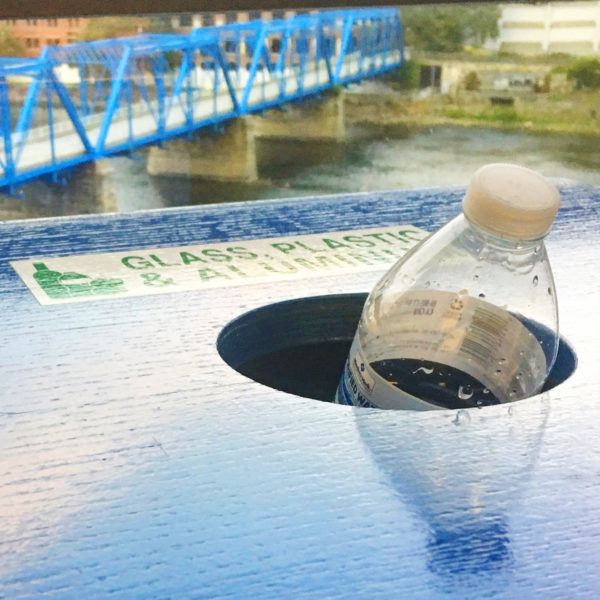Debunking the Michigan Container Deposit Repeal Bill
This week, members of Michigan’s lame duck legislature introduced a bill that could repeal Michigan’s 40-year-old bottle deposit law. If passed, the bill would undermine a successful bottling collection program that has recovered an average of 96% of bottles sold.
What’s a container deposit?
Container deposits are a system designed to reduce pollution by incentivizing the return of bottles. It adds a small deposit to the bottle at the point of purchase that is re-paid on return to a reverse vending machine. Bottle bills have a proven track record of reducing plastic and other bottle pollution.
Why do we need it?
Although the bottles — whether plastic, glass or aluminum — are highly recyclable, their recycling rates are dismally low since beverages are consumed on the go, leading to high levels of litter and plastic pollution. Container deposits have shown repeatedly that they prevent this from happening.
What you need to know
- December 2018 marks the 40th anniversary of the implementation of container deposits in Michigan: a system with one of the highest return rates anywhere in the world.
- Industry lobbyists are trying to take advantage of a lame duck session to repeal a bill that has been a cornerstone law keeping Michigan and the Great Lakes clean.
- When the container deposit was introduced, the law was so successful that it cut littered beverage containers by 84% and all litter by 41%!1
- Since 1990, Michigan’s bottle bill has recovered an average of 96% of bottles sold.2 Scrapping this in favor of curbside recycling, which has a success rate of 15% is absurd, particularly at a time of escalating recycling costs.
- At a time of peaking concern around plastic pollution, repealing container deposits would increase the 22 million pounds of plastic entering the Great Lakes each year.3
- Michiganders understand this: a 2013 Michigan poll shows 80.5% of people are in favor of expanding the program4 (bottled water is currently exempt). Another poll showed that the majority (55%) of people in Michigan are willing to pay more for consumer products to protect the Great Lakes.5
- The Beverage industry’s claims that curbside recycling should replace container deposits represents the interest of big business, not citizens since the cost would increase and litter would increase.
- Curbside recycling — no matter how much money is invested — will never match container deposits’ recycling rates because bottles consumed on the go are rarely recycled into a curbside system.
Watch: 3 Things You Should Know About Plastic Pollution
Learn more: How to stop half a trillion bottles polluting our planet each year
Take action: Beverage industry: stop killing plastic pollution solutions
Sources:
1. http://www.bottlebill.org/about/benefits/litter/bbstates.htm
2. http://www.bottlebill.org/resources/pubs/2017%20Redemption%20Michigan.pdf
3. https://ijc.org/en/second-binational-poll-reaffirms-citizens-feel-great-lakes-protection-critical
4. https://www.mlive.com/environment/index.ssf/2013/10/possible_changes_to_michigans.html
5. https://ijc.org/en/second-binational-poll-reaffirms-citizens-feel-great-lakes-protection-critical





